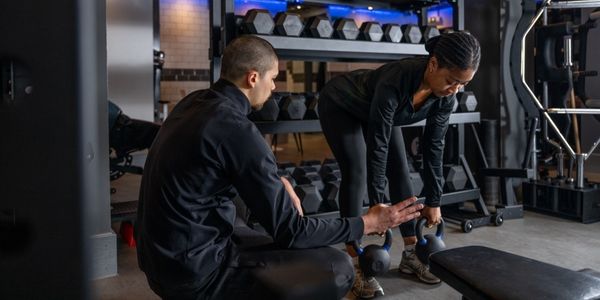Surgery is always a big moment. It’s not just the procedure itself — it’s the preparation beforehand, and the long road back to strength and confidence afterwards. How well you move, how quickly you recover, and even how comfortable you feel in daily life can all depend on how you prepare your body before the operation and how you rebuild afterwards.
That’s where structured exercise comes in. With the right plan, you can go into surgery stronger, recover with less pain, and get back to the things you love faster and more confidently.
The Science of “Prehab”
Most people know about rehabilitation, but fewer have heard of “prehabilitation.” It’s the process of strengthening your body in the weeks or months leading up to surgery.
Research shows that people who take time to prepare physically often recover more quickly and with fewer complications. Building strength around joints, improving flexibility, and training your cardiovascular system all reduce the shock surgery places on the body.
In practice, that might mean:
- Strengthening your legs before a knee replacement.
- Improving posture and mobility before spinal surgery.
- Building upper body strength before shoulder or chest procedures.
The stronger and more mobile you are before surgery, the better your body can handle the demands of recovery.

Rehabilitation That Goes Beyond the Basics
After surgery, recovery can feel slow, frustrating, and even isolating. Hospital physio appointments are often short and generic, leaving you unsure how to progress once you’re home.
That’s where personalised post-surgery training makes the difference. With expert support, you can:
- Regain mobility: Carefully guided exercises rebuild range of motion and prevent stiffness.
- Rebuild strength: Targeted training restores muscle that naturally weakens during downtime.
- Reduce pain: Strengthening stabilising muscles reduces strain and eases discomfort.
- Recover confidence: Structured sessions help you trust your body again and move without fear.
The goal isn’t just recovery — it’s restoring freedom and independence in your day-to-day life.
Why Strength Training Plays a Key Role
When people think of recovery, they often imagine gentle stretching or light walking. While those are useful, research shows that strength training is one of the most effective ways to prepare for and bounce back from surgery.
Muscle Preservation
One of the biggest challenges around surgery is muscle loss, also known as atrophy. Even a short hospital stay or period of reduced activity can significantly weaken key muscle groups. Resistance training before surgery helps you build a buffer of strength, while training afterwards slows muscle loss and restores function more quickly. The result is less time feeling weak and more time regaining independence.
Joint Protection
Strong muscles act like scaffolding for your joints. Before surgery, building muscle around the affected area improves stability and reduces the likelihood of compensatory pain. After surgery, carefully structured strength work supports the repaired joint as it heals, taking pressure off sensitive tissues. This not only reduces pain but also helps prevent future injuries, keeping your recovery on the right track.
Metabolic Support
Strength training isn’t just about muscles and joints — it also improves how your body manages energy and heals. Resistance work enhances insulin sensitivity and boosts circulation, both of which play a vital role in recovery. Better blood flow means nutrients are delivered more efficiently to healing tissues, while improved metabolism helps the body repair faster and more effectively after surgery.
Confidence and Function
Recovery isn’t only physical; it’s also mental. Many people feel anxious about moving after surgery, worrying they might undo the repair. With strength training, progress is clear and measurable — whether it’s pressing a resistance band more smoothly or lifting a little more weight. These milestones rebuild trust in your body and give you confidence that you’re getting stronger, one step at a time.
Scalable and Safe
Perhaps the most important factor is that strength training is adaptable for everyone. For some, it begins with bodyweight exercises or resistance bands. For others, it may involve barbells, cables, or machines. The principle is the same: structured, progressive loading that challenges the body safely. With expert guidance, strength training becomes not just safe but the cornerstone of effective surgical preparation and recovery.
Why Collaboration With Specialists Matters
The safest and most effective recovery happens when everyone is working together. At Fitness Lab, we regularly liaise with consultants, surgeons, and physiotherapists to make sure your training aligns perfectly with medical advice.

We can also work closely with one of London’s leading pre- and post-surgery physiotherapists — a world-renowned specialist who operates locally. That partnership means you get a seamless blend of hands-on physiotherapy and strength-focused personal training, creating a complete recovery pathway under one roof.
Whether you’re preparing for surgery or recovering afterwards, this joined-up approach ensures you’re never left guessing if you’re doing the right thing.
Privacy and Personalisation at Every Step
Recovery can feel vulnerable. That’s why every session at Fitness Lab takes place in a private training pod, fully equipped and exclusively yours for the hour. There are no crowded gym floors, no queues for equipment, and no feeling of being on show — just a calm, focused environment where you can work at your own pace.
Every plan is bespoke. We’ll adapt to your surgery type, your consultant’s recommendations, your exercise history, and your personal goals. Some people start with very gentle movements; others are ready for more. Both are valid, and both get results when the plan is structured properly.
More Than Just Exercise
Successful recovery isn’t only about what you do in the studio. Nutrition, sleep, and stress management all play a role in how well your body heals. At Fitness Lab, your coach will help you build good habits in these areas too — not with rigid rules, but with practical advice that fits into your life.
That accountability means you’re never going through recovery alone. From small daily wins to major milestones, you’ll have support every step of the way.
The Bigger Picture
Pre- and post-surgery training isn’t just about getting through the immediate recovery. It’s about setting yourself up for the years ahead. Stronger muscles, better mobility, and improved posture don’t just help you heal — they reduce the risk of future injuries and help you stay active for longer.
When you invest in recovery the right way, you’re not just returning to “normal.” You’re building a stronger, more resilient version of yourself.

Taking the First Step
If you’ve got surgery ahead — or you’re recovering from one now — the best time to act is today.
You don’t need to do it alone, and you don’t need to second-guess what’s safe or effective. With expert coaching, medical collaboration, and a private space to train, you can move into surgery stronger and come out of it faster, fitter, and more confident.

